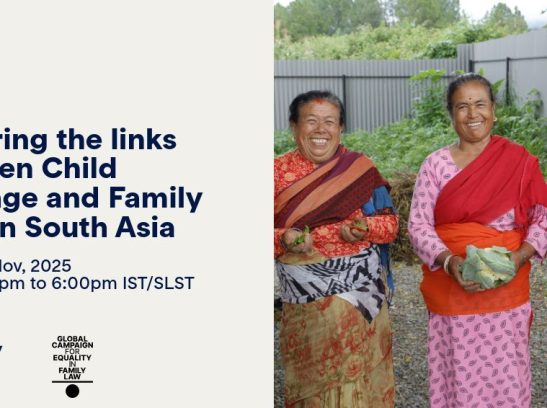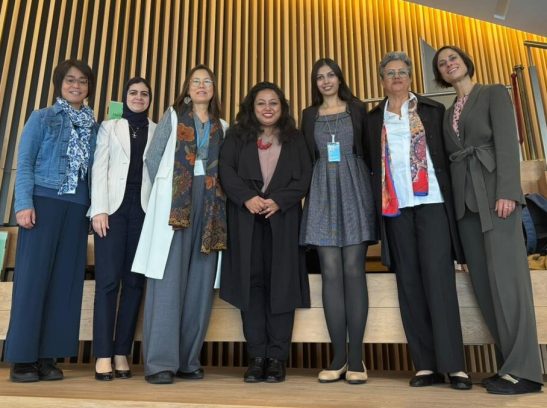Closing remarks delivered by Hyshyama Hamin on behalf of the Global Campaign for Equality in Family Law.
We are currently in the midst of multiple global crises, and the situation in many countries can get predictably worse. As a Sri Lankan, I particularly resonated with the statement by SRI and AWID. The global financial architecture is mired in unequal power dynamics that put additional burdens and barriers on Global South countries by taking away from critical national expenditure, including on education and healthcare.
Women and girls are doubly affected. Not only do they face inequalities at the family and societal level, but these are further exacerbated by the pressures of economic crises and recovery that our countries face from external economic institutions. States that are genuinely invested in upholding women’s human rights cannot have double standards and must examine their actions in the global macroeconomic landscape.
And while it is highly commendable that governments are taking specific measures to improve women’s access to employment and labour force participation, these will only go so far, if inequality and discrimination that limits women’s autonomy, decision making and economic rights still exists in the basic unit of society – the family.
So I want to reiterate that governments must recognise that family law is not just a ‘personal or household matter’. This is an argument that is used also by anti-right movements to shut down conversation about family law reform and roll back on progress. Inequalities in family laws and practices is a deeply rooted systemic issue that contributes, intersects and impacts all other areas of life including education, health, labour force participation, political participation of women and girls.
Reforming family laws to guarantee women full autonomy and equal partnerships is essential, followed by the full implementation of positive laws, procedures and good practices.
On behalf of the Global Campaign, I once again urge that:
- The international community and all governments must recognise inequality in family laws and practices as a priority issue that requires reform towards egalitarian laws and policies,
- States that still have reservations to Article 16 must lift reservations with priority;
- Family laws for all citizens, regardless of tradition, ethnicity or religious belief must
ensure that equality and autonomy for women men from the time of entering into marriage, including prohibiting child marriage, have full equality and rights within marriage and unions, including the right to pursue gainful employment and maintain control over assets and finances; and right to the fair dissolution of marriage and unions;
- Family laws must recognise and promote equal inheritance rights for children and widowed spouses and equitable distribution of marital property, accounting for financial and non-financial contributions.
In order for there to be truly transformative acceleration towards gender equality we need to prioritise reform of family laws and practices globally. The Global Campaign for Equality in Family Law welcomes collaborations in this regard.
Thank you.





